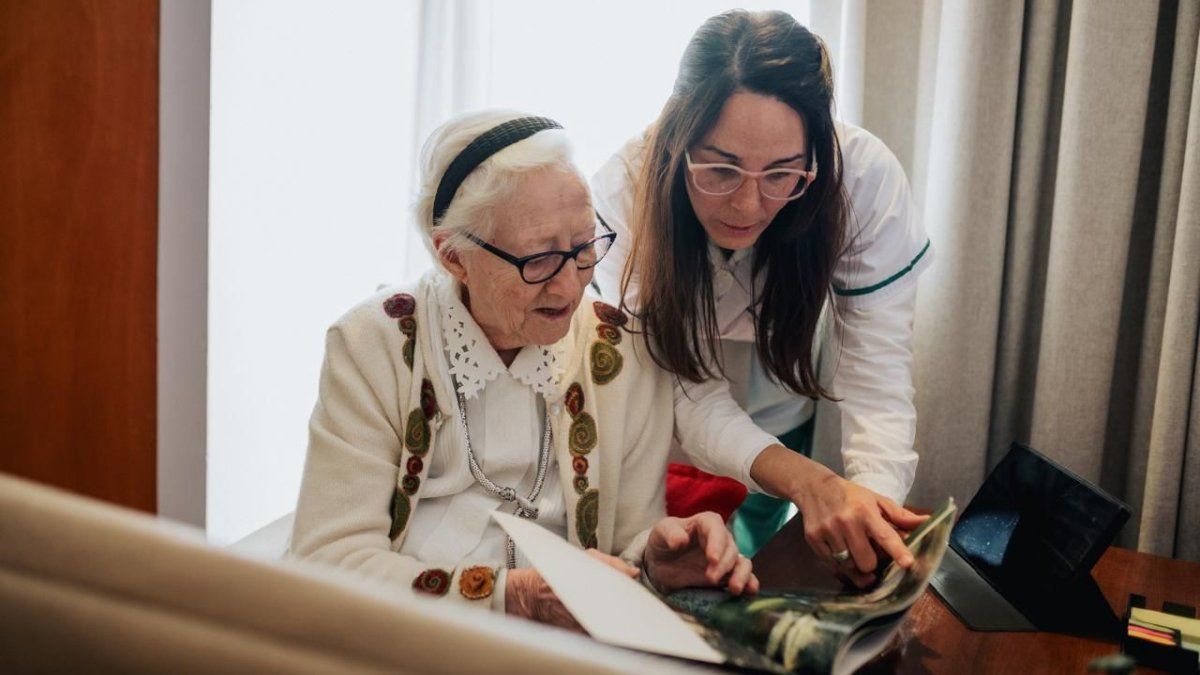The cognitive reserve It is the brain’s ability to resist or compensate for damage caused by aging and also allows better adaptation to changes caused by neurodegenerative diseases, pathophysiological processes or aging. In this context, specialists wonder what the benefits are and how it can be developed.
What is cognitive reserve
The concept of cognitive reserve is a fairly new concept developed by the American psychologist Yaakov Stern in 2002, and is defined as the ability to adapt cognition to brain changes caused by neurodegenerative diseases, some pathophysiological process, or alterations associated with biological aging.
This way, allows cognitive functions to be sustained despite the presence of some brain pathology, and its constitution is developed throughout life by practicing activities of intellectual or social type, work occupation or learning and physical activities that help strengthen neuronal networks and increase brain plasticity to adapt to eventual neurological adversities that may occur.
Research on cognitive reserve
Previous research on the effects of cognitive reserve was greatly advanced by the “Study of the nuns” by David Snowdon for the University of Minnesota, in 1986, with which it was possible to understand the cognitive deterioration associated with aging and Alzheimer’s disease.
Snowdon worked with some 678 nuns from the congregation of the Sisters of Notre Dame, in Bavaria, whose members were an average of 83 years oldmostly teachers with varied physical and mental conditions. The results showed that activities such as reading, writing, maintaining social and emotional relationships and adequate nutrition were the most influential factors to promote a good degree of cognitive performance.
“The concept of reserve in neuropsychology is used to account for the separation between brain damage or pathology and its clinical manifestation. There are two ways of approaching this phenomenon. One refers to the concept of brain reserve, which refers to quantitative differences such as an increase in gray matter, a greater number of neurons or synaptic networks, that is, what allows the communication and transmission of information through the nervous system,” Wanda stressed. Rubinstein, advisor to Manantial Grupo Humano, CONICET-UBA researcher and coordinator of the Neuroscience and Neuropsychology Research Center of the UP. Furthermore, he added: “The second type of cognitive reserve refers to the differences in the cognitive processes of each person that allow them to cope, to a greater or lesser degree, with brain damage.”
This cognitive reserve explains individual differences in the ability to resist advancing age and neurodegenerative diseases. “People with greater cognitive reserve have a greater capacity to face the progression of brain pathology long before symptoms begin to appear, because when these brain changes begin to occur, interpersonal differences can influence the most appropriate way for each person to face them,” said Romina Tirigay, a psychologist specializing in neuropsychology and a member of the Neurosciences Research Center. Neuropsychology from the University of Palermo.
“We all have the ability to generate cognitive reserve, it is just a matter of training it. The brain tends to carry out cognitive tasks through its conventional paths, so generating cognitive challenges promotes the need to follow new routes. We must remember that up to the age of 90 there is the possibility of generating new neurons,” explained Rubinstein.
Although we can develop cognitive reserve, and that it depends on educational factors or cultural habits and issues, Rubinstein also warned that it also It is determined by genetic factors. “To estimate the cognitive reserve of a subject, a series of indicators are used that refer to individual differences constituted by genetic and environmental factors. The use of a single measure of these does not provide a complete image of the cognitive reserve of an individual because it results from a combination of experiences and activities throughout life,” he stated.
At the same time, Tirigay stated that this reservation was associated with educational levelalthough the type of occupation, physical or leisure activities and socialization must also be considered. “Each of these factors and activities have differential weight in the cognitive reserve of individuals.”, he assured.
cognitive reserve 3
Rubinstein indicated that each person’s aging depends on multiple factors such as genetics, social factors, lifestyle or stress management.
The relationship between cognitive reserve and aging
Rubinstein indicated that the aging Each one depends on multiple factors such as genetics, social, lifestyle or stress management. “In the development of neurodegenerative diseases there are also modifiable risk factors and others that are not modifiable, such as age and family history,” highlighted the specialist who works at Grupo Humano Manantial.
Furthermore, he added: “approximately 40% of dementia is attributable to modifiable risk factors. In a recent study from Latin America, the proportion of cases that could be prevented if 12 modifiable risk factors were eliminated in Argentina is 55.8%. Although this study was done with 12 factors, currently 14 are considered, including untreated vision loss and high LDL cholesterol.”
Rubinstein also maintained that The use of screens limits lived experiences, to the detriment of brain development and multisensory integration, limiting the cognitive and emotional process.. “Addressing modifiable risk factors and implementing prevention and active aging policies is essential taking into account that neurodegenerative pathologies represent a serious socioeconomic problem,” he expressed.
The cognitive reserve is an accumulating individual capital that allows, in the event of developing a neurodegenerative disease, that people adapt better to cognitive demands and the pathology of the disease manifests late. In the case of the Alzheimer’s diseasecognitive reserve will not prevent its development, although it will delay the symptoms and, in some cases, compensation ensures that clinical symptoms do not manifest.
“Just as over the years the skin wrinkles or gray hair appears, functions such as attention, memory, or executive functions change. To this end, cognitive reserve allows us to better adapt to the changes that occur with the aim of continuing to respond correctly to the cognitive demands of daily life,” said Rubinstein.
For his part, Tirigay stated that The brain is modifiable based on personal experience. “That is why each person’s lifestyle impacts the brain’s ability to cope with changes related to normal or pathological aging.” Because people with greater cognitive reserve can endure greater brain pathology thanks to their compensation capacity, the neuropsychology specialist agreed that “the onset of symptoms will be delayed.”
How to have healthy aging
Emphasizing modifiable risk factors, the Manantial Group’s recommendations for healthy aging are:
- Maintain a Mediterranean diet: fruits, vegetables, olive oil, fish. Lower consumption of red meat, flour and ultra-processed foods. An alarming fact in relation to food is that Argentina is among the countries with the highest per capita sales of calories from sugary drinks and ultra-processed foods.
- Carrying out physical activity: It is essential for the body and soul relationship, and provides benefits for the mood and physical state. Physical challenges also generate a greater number of neuronal connections by increasing neurogenesis and strengthening existing circuits, which are key to learning and memory. There are studies with older people that showed that by performing a physical challenge they were able to alter the volume of the hippocampus, the structure responsible for memory and the storage of memories, in six months of work.
- Social life: Being with others and interacting is a protective factor against the development of depression and social isolation. Having and feeling support generates well-being and has benefits on cognition. Empathizing with others activates mirror neurons, allowing us to empathize with others, and generates greater cognitive demand, developing better communication and social interaction strategies. A contrary example, to better understand this effect, is the consequence caused by the coronavirus pandemic, when older people were isolated and suffered consequences of cognitive deterioration and depression.
- The cognitive challenge: challenges such as improving yourself educationally, musical training, practicing hobbies, learning a second language or reading. Also practice classroom or board games such as cards, crossword puzzles, sudoku and others that promote skills such as organization, planning or decision making. And it is advisable to increase the degree of difficulty as you progress in learning.
Both professionals agreed to highlight that “All of these proposals constitute healthy practices that potentially lead to promoting and developing the Cognitive Reserve and keeping it active.”
Source: Ambito
I am an author and journalist who has worked in the entertainment industry for over a decade. I currently work as a news editor at a major news website, and my focus is on covering the latest trends in entertainment. I also write occasional pieces for other outlets, and have authored two books about the entertainment industry.




